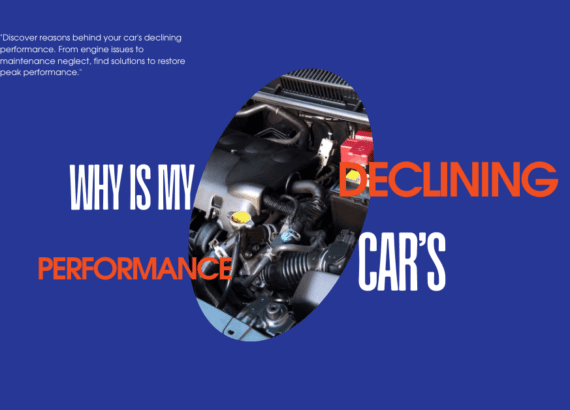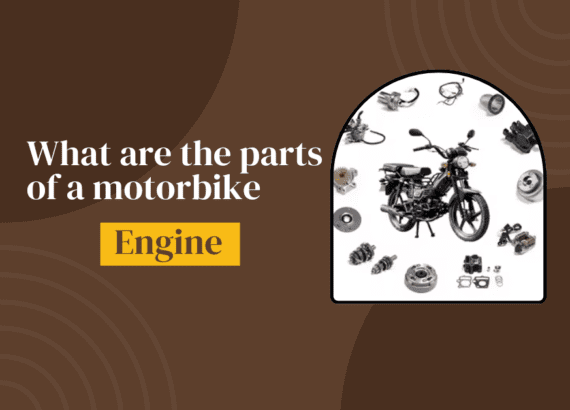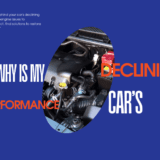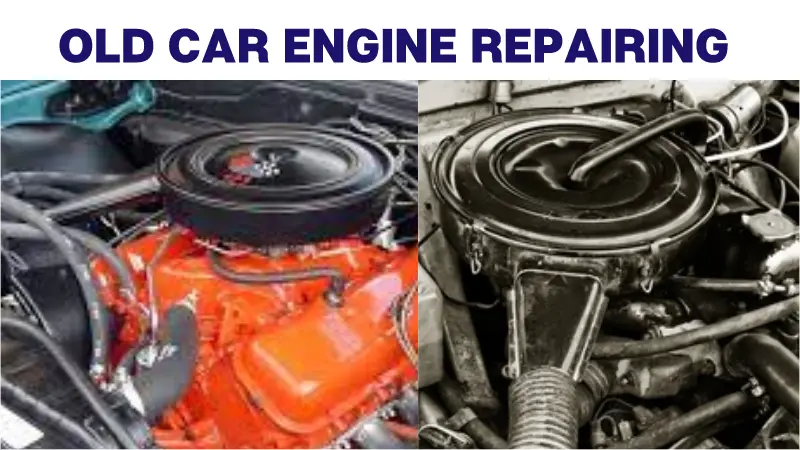What Fuel Should You Use in Your Classic Car?

Navigating the labyrinth of fuel options for older cars like classic treasures demands astute consideration. Particularly in an era where leaded fuels with a high octane rating are scarce due to environmental reasons. As a recent purchaser of a vintage vehicle from the early 2000s, finding the right fuel became an arduous journey.
The majority of modern fuels pose risks for these beloved machines. Especially ethanol blends that spell bad news for their engines. Consulting fellow enthusiasts and understanding the intricate nuances of these engines is crucial in uncovering safer alternatives. Despite the challenges, classic car enthusiasts strive to preserve the essence of these automobiles .While treading carefully along this complex road of available options.
Compatibility Issues between Modern Fuels and Classic Cars
Engines in classic cars, meticulously built for lead-based fuel, now face challenges due to the switch to modern unleaded fuel. The absence of lead in these fuels leads to increased wear on critical components like valves. potentially causing damage to the engine’s integrity.
The finely tuned ignition and firing mechanisms are also affected, requiring adjustments to prevent damage and ensure optimal performance. Protecting these engines involves considering different types of fuel or additives to mitigate the adverse effects and maintain the health of these vintage treasures.
Impact of Phasing Out High-Octane Fuel in the UK
Navigating the phased-out high-octane fuel scenario in the UK poses a challenge for classic car enthusiasts. As suppliers rely on modern alternatives, leaving the pure petrol, essential for these vintage vehicles’ less abrasive fuel systems, scarce.
The reliance on a specific kind of fuel, once abundant at pumps. Now necessitates exploring retrofitting solutions or modifications to preserve these automotive treasures’ authenticity while embracing the evolving fuel landscape’s environmental consciousness.
Ethanol in Modern Fuels and Its Effects on Classic Cars
As a passionate owner of classic cars, the transition in fuel compositions since. The government banned lead-based petrol in 2000 has posed a significant challenge. Modern fuels incorporating ethanol, while deemed environmentally-friendly, contain a greater quantity of this compound, causing havoc for classic car owners.
Fuel companies have shifted to standard unleaded blends, but the corrosive properties of ethanol harm these older engines. Finding petrol with a low enough ethanol count becomes a constant struggle. Emphasizing the necessity for fuel suppliers to consider the distinct needs of these cherished cars.
Drawbacks of Fuels Containing Ethanol for Classic Cars

Utilizing Ethanol-containing fuels in vintage cars, especially those stored for extended periods Presents substantial concerns due to Ethanol’s hygroscopic nature, which absorbs moisture and promotes rust within fuel tanks.
Older vehicles, not designed for this kind of fuel, suffer a significant performance decline of over 30% and are vulnerable to the powerful solvent action of Ethanol. Corroding materials like rubber and fiberglass used in their components, thereby compromising their longevity and integrity.
E10 Petrol
The shift to E10 petrol at UK fuel stations for classic cars involves considering the implications of this standard petrol with its E5 formula containing ethanol. However, this choice can potentially impact engine health and performance. Through personal experience, I’ve found that integrating Redux petrol fuel additives becomes crucial to counterbalance potential repercussions and uphold .The optimal functioning of these cherished vehicles.
Using Redux Fuel Additives with E10 Petrol
Using Redux as a petrol fuel additive alongside E10 fuel in classic cars manufactured before 2011 is a surefire strategy. Just a small shot of Redux in the tank significantly bolsters engine health and performance .While countering potential corrosion risks attributed to heightened ethanol content.
This integration not only ensures car safety but also enhances the overall driving experience, reflecting the essence of preserving vintage vehicles while optimizing their functionality.
Which Fuels Work Best in Classic Cars?
Preserving collector cars means choosing fuels wisely; opt for ethanol-free gasoline to safeguard these treasures on the road.
High-Octane Fuel
When it comes to Repair and rebuild old car engine and classic cars, high-octane petrol from select fuel suppliers in the UK is a performance game-changer. This specialized fuel, with its higher octane rating, not only enhances power levels but also ensures smoother engine operation. Particularly noticeable in sports cars and vehicles tuned for higher performance. However, managing ethanol content prevalent in modern fuels poses a challenge, impacting the integrity of these engines.
Utilizing additives like Redux Power Booster becomes crucial to counteract these effects and safeguard the engine. Balancing tradition with performance requires sourcing the right fuel, and a handful of dedicated suppliers offer this high-octane solution. Ensuring these older engines run optimally, marrying authenticity with the quest for enhanced performance.
Standard Low-Ethanol Fuels
When it comes to classics, preserving their engines is crucial. Opting for standard fuels becomes a priority, favoring lower octane petrol to maintain the ignition without compromising the combustion rate.
Amidst the forecourt options, research becomes key, seeking the lowest amount of ethanol content, often denoted by the ‘E’ sign. Particularly, E10 and E5 are notable, signifying the percentage of ethanol blended. From personal experience, the impact of high-octane fuel versus ethanol content on the performance of classics has been evident. Prioritizing the right fuel underscores the longevity and optimal functioning of these beloved vehicles.
Euro 95 or Super 98?
Classic British cars like the MGB or TR6 often run optimally on higher-octane fuels. The compression in these engines demands a higher-grade gasoline to prevent detonation or the dreaded ‘pinging’ sound during ignition. While Euro 95 is a common choice, Super 98 offers an edge for these spirited machines.
In the 1970s American market, sedans were delivered with lower compression engines, making Euro 95 suitable. However, for sportier models like the MGB or TR6, a higher-octane fuel like Super 98 becomes the preferred choice. The tuned engines of these classics, often fitted with faster camshafts. Benefit from the higher octane, ensuring they not only run well but also last longer.
The air-fuel mixture in classic cars creates opposing forces within the combustion chamber. The irregular beating or pounding sound during ignition can cause serious damage over time. Using Euro 95 might be suitable for some sedans. But for engines with adjusted ignition timing somewhat later, the risk of spontaneous combustion occurring close to top dead center is higher. This makes Super 98 the safer option for these high-performance classics.
My experience with these vehicles has shown that the right fuel is crucial. It’s not just about making a choice; it’s about understanding the dynamics of your engine and ensuring it’s cared for in the best possible way. In the open discussion of Euro 95 vs. Super 98 for classic cars, the verdict leans towards the latter for those seeking optimal performance and engine longevity.
E10 gasoline (High octane petrol ethanol)
In considering E10 gasoline (High octane petrol ethanol) for your vintage ride, it’s crucial to understand the impact of ethanol on older vehicles. While the 10% ethanol mix aims for a greener environment, it’s absolutely critical to grasp its effects on classic cars. The ethanol’s affinity for water spells trouble, leading to corrosion in the fuel system and tank over a longer period of storage. The risks to rubber hoses, diaphragms, and cork components are significant, as ethanol tends to dissolve old petrol residue. Creating potential havoc in the soft parts of the system. For a classic car, E10 becomes out of the question due to its concentration of ethanol, making it unsuitable and even harmful.
Now, turning to viable options, Euro 95 with a 5% ethanol content becomes advisable for refuel. Opting for premium gasoline featuring the lowest possible alcohol content like Super 98, V-Power, Excelsior, etc. Proves sufficient for classic cars. Preserving the integrity of your vintage vehicle demands a careful choice. Steering clear of ethanol concentrations that spell trouble for these cherished machines.
Lead substitute
When it comes to classic cars, preserving their authenticity and performance is key. The cylinder head and valve seats demand special attention due to their vulnerability to wear with the wrong fuel. Enter the solution: a lead substitute. It’s not just an additive; it’s a guardian against compression issues and power loss.
My own experience with classic vehicles taught me the importance of this protection. Finding the right unleaded specification is crucial, and brands like Castrol offer trustworthy options. These substitutes, readily available in online web shops, ensure your engine runs smoother, preserving its heritage without compromising on performance.
LPG
Converting classic cars to accept LPG. An environmentally-friendly gas, is a decision many drivers in the UK are making, despite initial concerns about authenticity. The popularity of this option is evident in the readily-available filling stations. The sacrifice of originality is balanced by the reduced CO2 emissions and affordability in the long run.
Even though installation and maintenance come with higher costs. The noticeable benefits in fuel expenses and reduced environmental impact leave . A lasting positive impact on both the wallet and the planet. In my experience, embracing LPG doesn’t mean sacrificing the essence of classics; it’s about respecting their heritage while making sustainable choices for the future.
Always store with a full tank
Storing a classic car properly is crucial, especially when considering what fuel to use. Always store the car with a full tank to prevent condensation. Which leads to rust inside the engine compartment during prolonged storage, often beyond the average six months. Opting for premium fuel for extended storage can be beneficial, but regularly checking hoses and the fuel filter is equally essential to replace any degraded parts.
As someone experienced with classic cars, I’ve witnessed the detrimental effects of incorrect fuel choices and inadequate storage firsthand; it’s not merely about outdated petrol, but about preserving your classic’s integrity by taking simple yet profound steps like maintaining a full tank during storage.
Converting to Modern Engine
Converting your classic car’s engine to modern fuel like LPG can balance tradition with efficiency, reducing expenses without compromising its original condition. Owners often have worries about altering the standard fuel, yet occasional top-ups offer a harmonious solution.
Lead Replacement Additives
In the realm of safeguarding vintage vehicles, Redox Lead Replacement additives emerge as the unsung heroes. Specifically designed to address the harmful effects of ethanol in modern fuels on classic car systems, these additives promise more than mere conversion to leaded fuel.
They lubricate and protect vulnerable components like valve seals, ensuring excellent performance. As someone deeply immersed in the world of classic cars, I’ve witnessed firsthand how these additives maintain the tank and fuel system’s integrity, making the choice between converting to leaded fuel or using standard fuel an easier option. It’s all about guaranteeing the performance of these cherished vehicles while respecting their original design.
What Will Electric Mean for Classic Cars?
In the ever-evolving landscape of automotive technology, the looming advent of electric motoring poses a daunting question for classic car owners: What fuel will power our cherished vehicles in this future? As governmental legislation and the inevitable rise of electric motoring push towards a new era, the certainty of finding compatible fuels becomes more apparent.
Amidst speculation and the challenge of diminishing fuel supplies, industry experts and the UK government’s intention translate to a transition that demands attention. However, hope gleams on the horizon with the prospect of synthetic fuels, exemplified by VW’s successful strides in producing the world’s first fully synthetic, sustainable fuel—a promising long-term solution for the reliable power source these vehicles need.
While the future holds the promise of innovative solutions, navigating the present by seeking compatible fuels from local forecourts and leveraging fuel advice from trusted sources like car maintenance guides or platforms like the Redux blog becomes imperative for classic car enthusiasts, bridging history with the inevitability of technological progress.
Conclusion
In the labyrinth of fuel choices for classic cars, the quest for the perfect match between preservation and performance is both intricate and vital. The challenges of transitioning from leaded to modern unleaded fuels, compounded by the impact of ethanol blends, demand a careful balancing act. As classic car enthusiasts, our dedication to safeguarding these automotive treasures involves diligent research, seeking advice from fellow enthusiasts, and exploring additives or specialty fuels.
While the future holds promises of synthetic and sustainable options, our focus remains on cherishing and maintaining the essence of these timeless vehicles. Ultimately, the journey of fuel selection for classic cars epitomizes the delicate art of embracing tradition while navigating the evolving landscape of automotive technology.
FAQs
Which fuel is best for classic cars?
Therefore, if your classic is not used for a while, it is advisable to refuel a premium gasoline with the lowest possible alcohol content (Super 98, V-Power, Exclaim, etc.). Some suppliers are offering additives for E10, specially designed to counteract the harmful effects on our classics.
What is the best fuel additive for classic cars?
For a safe additive for classic cars, use a non-alcohol-based fuel treatment. This type of solution will prevent additional water accumulation in the gas. Never use an ethanol-based fuel treatment when you are using a non-ethanol-based gas.
What is the best fuel for carbureted engines?
If you perform regular maintenance on your equipment, (keep fresh fuel, clean the carburetor, etc.), then Regular octane gas will work just fine. You only need Mid-grade or Premium gas (89-octane or higher) if you have a vehicle with a high compression ratio, which will be noted in your owner’s manual.
Should I use 91, 95 or 98 petrol?
According to NRMA motoring expert Jack Haley, on average 95 RON can give around 4 per cent lower fuel consumption than 91, assuming the engine computer adjusts to take advantage of the octane difference. Using 98 might give 3 per cent reduction over 95, again assuming the computer adjusts the engine parameters.
Which petrol is best for classic 350?
Always refer to the owner’s manual or consult with a qualified mechanic for specific recommendations regarding fuel for your Royal Enfield Classic 350. Regular unleaded fuel is the best for any model of RE. Because RE bikes have very less compression ratio. And premium fuel needs very high compression for ignition.
Should I use high octane fuel in my classic car?
Furthermore, most pre-war cars were designed to tolerate even lower octane fuels, yet will also run well on today’s 95 or 97 RON petrol. Octane requirement should therefore be seen as a minimum requirement to ensure the correct operation of the engine.











